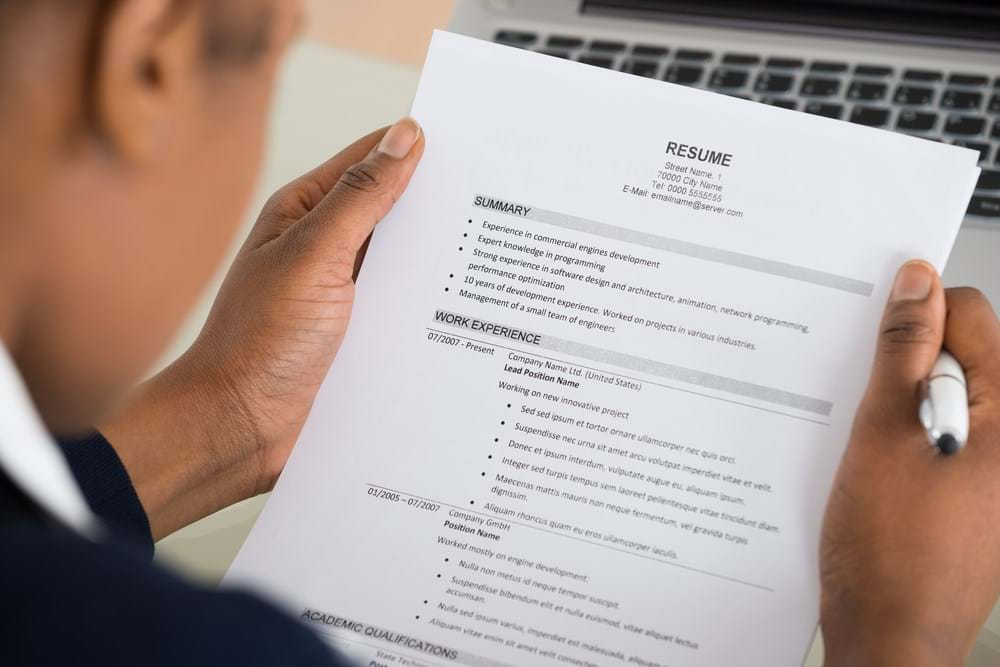10 job hunting tips for chemical engineering graduates
29th September 2017
The first semester of university is underway. For some chemical, bio-chemical and process engineering students, it’s their final year; for others it’s their first September for sometime not spent in a lecture theatre or lab.

Either way, it can be a daunting prospect. Where do you begin? How do you prepare for job hunting and those all important interviews to come?
Here are our top 10 tips to help in your job hunting journey.
- Know what you want
There is a whole world of jobs out there, but working out where you will fit it can sometimes be difficult. A useful starting point is to evaluate the industries, sectors and job roles that appeal to you most and make an initial assessment of the positions that are available.
Food and beverage manufacturing, the water industry, pharmaceuticals, oil and gas processing, consumer products, and power generation are just some of the sectors where chemical engineers are employed. Use all of the usual research tools to gain a broad understanding of these sectors – web searches, books and industry magazines, careers advisors, conversations with industry contacts and tutors, student forums or job forums, and by visiting careers events.
If you’re an IChemE member, get in touch with your local member group or relevant special interest groups to make contact with experts in a particular sector. Join their webinars, check out their newsletters and join in the conversations on their social media platforms. Better still, get involved. You’ll be giving something back to your profession at an early stage in your career and this will look great on your CV.
- Find out as much as you can about the companies that you apply to
Once you’ve spotted a job vacancy that appeals; further research will be needed. The more you can find out about the company you are interested in, the better. Have they been in the news recently? What are their top people saying? Armed with information like this, the job on offer might prove even more attractive. Alternatively, you might conclude it’s not really for you and save yourself some valuable time.
Use your application cover letter to highlight your knowledge of the company, you can then build on this if you get an interview.
- CVs and application forms must be tailored

When it comes to online applications, draft and review your answers offline in a separate document. Cut and paste your text into the online form and check it carefully before hitting the ‘submit’ button. If you are emailing your CV and cover letter, again proof read your documents carefully, and make sure that you’ve attached the correct files before sending.
Always obtain the permission of your referees before including them in CVs or applications.
- Know your strengths and weaknesses
Think about your strengths and weaknesses – it helps to write these down. Evaluate the skills specified for the job in question; taking both interpersonal and technical skills into account. It’s worthwhile scoring yourself on a scale of 1 to 4 (1 = I need further development in this area, and 4 = I’m very strong in this area). Recognise that you won’t score ‘4’ every time and most employers won’t expect you to either.
- Be strong, but be truthful
Don’t tell employers what you think they want to hear. Take those skill strengths you’ve identified and find strong examples – a couple for each will do - to use both in your application and in conversation at the interviews. You’ll be expected to demonstrate the impact you’ve made in specific situation, and how you used your skills and experience to deliver successful outcomes. Steer clear of embellishment or making things up. It’s quite likely that you’ll get found out with a probing follow-up question.
- Tell them the whole you.
This doesn’t mean telling your life story. Rather you should aim to offer a holistic picture of what makes you tick. Talk about your hobbies and other things that you’re passionate about. You’ll need to show a prospective employer that you’ve not only got the skills for the job, but also that you’re personable, approachable, flexible and willing to work hard, both independently and with others. Use examples to show your true personality. Again, don’t pretend to be someone you’re not simply because you think that’s what the interviewer wants to hear.
- Practice makes you better

Practice your answers, perhaps with a friend playing the role of the interviewer, you’ll become more familiar with what you intend to say and can fine tune your answers to emphasise the content that is most relevant to the role that you are applying for.
There are lots of web resources that discuss the most popular interview questions. Here's a good one from Forbes magazine to get you started.
- Let your body do the talking
You’ve done your research, you’re well prepared and you’re dressed appropriately for the interview. But your nerves are jangling. Don’t worry, that’s normal. Your body language will be more comfortable – and more confident – if you take a moment to breathe, settle yourself, and listen carefully to the question before you answer. Pausing for a moment can bring clarity and allow you to pull the most appropriate answer from your head. It’s okay to ask for clarification of a question if needed – but don’t do this for every question.
Stay alert; maintain good eye contact with the person asking the question and aim to look calm and confident. Remember that interviewer(s) start to make a judgement immediately on meeting you. Think positively from the moment that you are shown into the interview room. Make sure that you are seated comfortably, breathe in..and away you go.
- Stay calm during psychometric and aptitude tests

Keep calm, consider the questions carefully and work at your own pace. If you are involved in a group exercise, make good use of interpersonal skills and maximise your contribution.
- Always ask for feedback
Whether directly or through a recruitment agency, make sure that you ask for feedback on your application and interview. It’s always useful to know what worked well and what didn’t work so well – even when you get the job. However, if you aren’t successful, the feedback will be invaluable when you are preparing for the next application and interview.
Don’t dismiss the feedback you’re given. Be open to constructive criticism and aim to use at least part it to improve your next performance.
IChemE members can also find further advice in the latest editions of the Job Hunters Survival Kit and Graduates’ Guide. Not an IChemE member? Find out more information on how to join your professional community via the IChemE website.